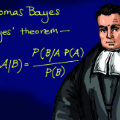Bayesian methods for solving inverse problems are a powerful alternative to classical methods since the Bayesian approach gives a probabilistic description of the problems and offers the ability to quantify the uncertainty in the solution. Meanwhile, solving inverse problems by data-driven techniques also proves to be successful, due to the increasing representation ability of data-based models. In this work, we try to incorporate the data-based models into a class of Langevin-based sampling algorithms in Bayesian inference. Loosely speaking, we introduce NF-ULA (Unadjusted Langevin algorithms by Normalizing Flows), which involves learning a normalizing flow as the prior. In particular, our algorithm only requires a pre-trained normalizing flow, which is independent of the considered inverse problem and the forward operator. We perform theoretical analysis by investigating the well-posedness of the Bayesian solution and the non-asymptotic convergence of the NF-ULA algorithm. The efficacy of the proposed NF-ULA algorithm is demonstrated in various imaging problems, including image deblurring, image inpainting, and limited-angle X-ray computed tomography (CT) reconstruction.
翻译:贝叶斯方法在解决反问题时是经典方法的一个强大替代,因为贝叶斯方法给出了对问题的概率描述,并提供了量化解决方案的不确定性的能力。与此同时,通过数据驱动技术来解决反问题也被证明是成功的,这是由于数据驱动模型的表示能力不断增加。在本文中,我们试图将数据驱动模型纳入到贝叶斯推断的一类基于 Langevin 的采样算法中。简而言之,我们引入了 NF-ULA(Unadjusted Langevin 算法由标准化流组成) ,其中包括学习作为先验的标准化流。特别地,我们的算法只需要一个预先训练好的标准化流,这独立于所考虑的反问题和正向算子。我们通过考察贝叶斯解的良好性和 NF-ULA 算法的非渐进收敛来进行理论分析。我们演示了所提出的 NF-ULA 算法在各种成像问题中的有效性,包括图像去模糊、图像修补和有限角度 X 射线计算机断层扫描(CT)重建。



